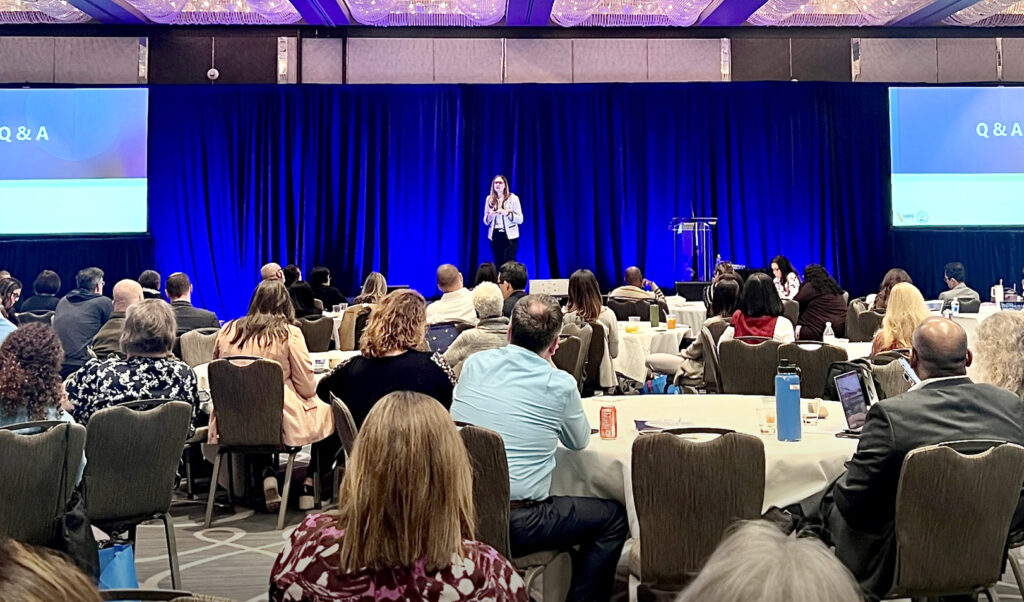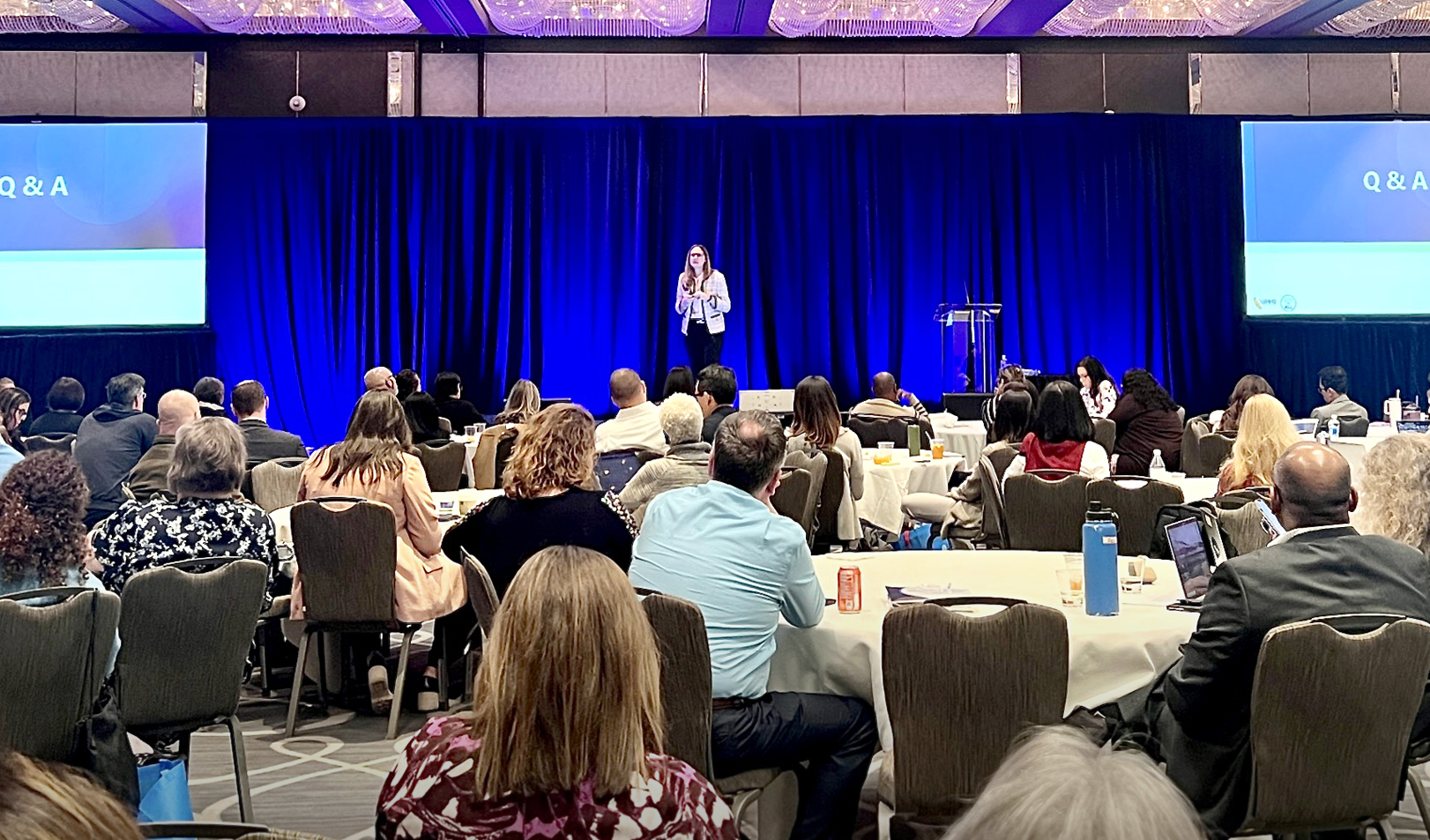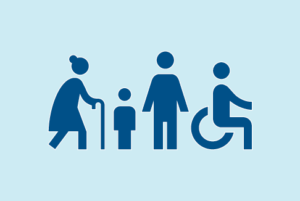What’s happening: More than 250 health care professionals and hospital leaders from across California gathered in Long Beach on Dec. 4-5 for CHA’s annual Behavioral Health Symposium.
What else to know: Attendees discussed innovative ways to connect patients to community-based care and tackle stigma, updates to California’s involuntary treatment and emergency services laws, and more.

Stephanie Welch, deputy secretary of behavioral health at the California Health & Human Services Agency
Among the highlights, panel speakers from Dignity/CommonSpirit discussed how stigma surrounding substance use disorders affects patients. They shared work their system is doing nationally to reduce stigma and provide better care and suggested that words used by caregivers can have a big impact. When staff members discuss patients who frequently access emergency department care, for example, they should use the term “familiar face” instead of “frequent flyer” because, as CommonSpirit Market Director of Quality Karen Frank noted, “There is no greater kindness than being nonjudgmental.”
California Surgeon General Diana Ramos, MD, MPH, told attendees about “Strong Start and Beyond,” a statewide initiative to reduce California’s maternal mortality rate 50% by 2026. Dr. Ramos shared that California has the lowest rate of pregnancy related mortality deaths in the nation and gave significant credit to hospitals. “Thank you, hospitals,” she said. “You’re saving lives.”
Funding from passage of Proposition 1 will be essential to improving access to care in the coming years and constructing more treatment facilities and housing, according to Stephanie Welch, deputy secretary of behavioral health at the California Health and Human Services Agency. Welch said during one of the general sessions that a large portion of the $6 billion bond will be used to sustain a grant program that began in 2021, adding that the state has received proposals totaling 10 times the amount of available funding from the grant. This demonstrates significant community need and highlights how many service providers, including hospitals, want to build capacity to meet community needs.
As part of National Sock Day, held annually on Dec. 4, conference attendees donated nearly 1,000 pairs of socks for people experiencing homelessness. They were presented to Healthcare in Action, a nonprofit that provides health care and social services via mobile clinics to people experiencing homelessness in California. Socks are one of the most requested but least donated items at shelters.



